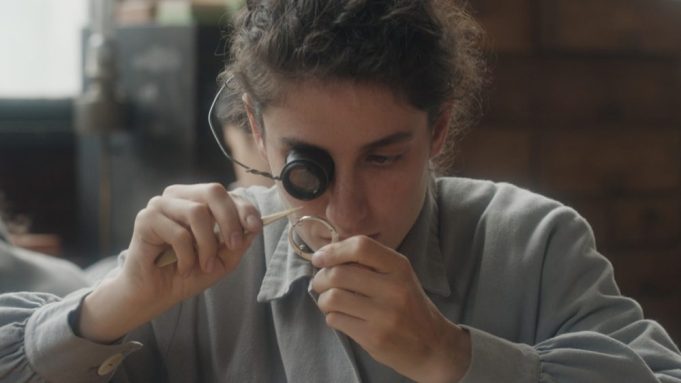Cyril Schäublin’s intellectually ticklish, formally daring delight marks him out as a singular new filmmaking talent.
By Jessica Kiang, February 15, 2022
In a valley in the Swiss canton of Bern dominated by the local watchmaking industry, the first ever International Anarchist Congress was held in 1872. And inside a traditionally made clockwork watch, such as the factories of Bern would have been producing at the time, there is a tiny spiral wheel that balances the mechanism, called the unrueh — the unrest.
This dainty coincidence of echoing terminology at most might raise a “huh” from those of us into wordplay and social history and Twitter accounts that exclusively post images of machinery at work. But for Swiss director Cyril Schäublin, it becomes the kernel of “Unrest,” a gorgeously playful oddity glimmering with insight into ideology, photography, cartography, telegraphy, celebrity, solidarity, the flow of capital, the unruliness of time and the somehow noble lunacy of trying to tame such a massive concept into a brass doodad small enough to fit in a waistcoat pocket.
Pyotr Kropotkin was a Russian polymath who became a central figure in the anarcho-communist movement of the late 1800s. In “Unrest” he is introduced obliquely, by a small knot of young Russian ladies in lace carrying white parasols and clutching flowered hats to their heads against the wind. They talk about “Poor Pyotr” — he was rumored to have fallen in love with a photograph of a woman from Papua New Guinea who was executed after she slit the throat of an English officer who tried to kiss her — and remark that he is now visiting “some valley in Switzerland,” where he has become an anarchist. The (in)action then moves to Switzerland, where Pyotr (Alexei Evstratov) arrives in the watchmaking town of St. Imier, ostensibly to carry out a survey for a more accurate map of the region.


